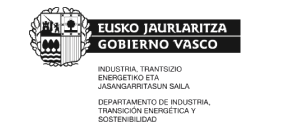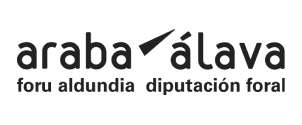The 2015 Paris Agreement set the objective of limiting global warming to below 2 °C, preferably 1.5 °C, compared to pre-industrial levels. The European Commission's European Green Deal (hereafter EGD) of December 2019 defined guiding principles and a roadmap for the implementation of a medium- and long-term growth and competitiveness strategy to transform the European Union into a modern, competitive and resource-efficient economy.
The EU Green Deal involves a green, circular, digital and fair transformation of the economy, with environmental sustainability as a cross-cutting dimension. Since its adoption, and despite the pandemic, most of the deadlines in its roadmap for the approval of strategies, plans, revisions of directives, new regulations, etc. have been met. The European Union is also adapting the foundations of the EGD to face new geopolitical and geo-economic challenges that put the competitiveness of European industry at risk, such as competition from countries like China or the USA.
It seems that since the signing of the Paris Agreement and the publication of the EGD, we are experiencing the awakening of environmental awareness and the search for "eternal" sustainability, something that hadn't been achieved before by the Meadows report, nor our own Magna Carta (from the 1970s), the Bruntland report (from the 1980s), the United Nations Framework Convention on Climate Change and the Kyoto Protocol (from the 1990s) or the reports that the Intergovernmental Panel on Climate Change and many environmental NGOs have been developing since the 1980s.
Along these lines, the last three editions of Orkestra's Basque Country Competitiveness Report have concluded that one of the great challenges facing the Basque Country is to make progress in sustainability from an environmental point of view. The 2020 Report emphasized the need for the green transition to strengthen the resilience of the territory and accompany the recovery of the economy, which was already deteriorated due to the health crisis. The 2021 Report, where Orkestra's new framework of "competitiveness at the service of well-being" was introduced, highlighted the urgency of accelerating the green transition. Finally, the 2022 report identified the need to advance in environmental sustainability as a priority cross-cutting action to guarantee competitiveness.
After an in-depth discussion, we have decided that the 2023 Competitiveness Report should focus on the transition towards sustainable competitiveness, which should strengthen the bases of competitiveness of the Basque economy and generate greater wellbeing. To help understand the complexity of this process, the report will apply the competitiveness for wellbeing framework developed in 2021. Although other elements will also be addressed, the focus of the report will be the analysis of the six dynamic levers on which action can be taken to generate better results both in economic and business terms and in terms of wellbeing.
We will start with an analysis of natural capital, where a description of strategic and energy resources will be presented, as well as an update of data on the environmental sector in the Basque Contry. Then, we will study our physical capital. This lever will describe the capital stock in the Basque Country in different sectors and areas of activity (energy, digital, transport, industry, building, waste, water...) and will identify the main challenges for the deployment of critical infrastructures for sustainable transition.
For the third lever, financing, we will analyse the strengths and specific mechanisms of the Basque financial ecosystem for tackling sustainable transformation from a micro perspective. We will also include a brief analysis of innovative public-private financing schemes and eco-innovation. In the lever related to knowledge we will delve into how the generation of knowledge and R&D activities can contribute to sustainability. The fifth lever, human capital, will be aimed at assessing the skills of the population of the Basque Country related to sustainability, and data will be presented on the training supply.
The analysis of the last lever, social and institutional capital, will explore the need to advance in innovative and efficient collaborative governance schemes as a critical axis for sustainable transition, in a context where there will be winners (due to new opportunities) and losers. The definition of roles based on reciprocity, the creation of a shared vision and the clarification of conflicts through spaces for dialogue to build consensus, will also be noted as elements transferable to dialogue for progress towards sustainability. A brief analysis of the Net-Zero Basque Industrial Super Cluster will be included, as an example of the materialisation of a strategic project based on the collaboration between multiple public and private agents.
Based on the exploration of the levers, we will identify opportunities and propose recommendations, in order to make progress in the sustainable transition. Despite the great challenges faced by the Basque Country in its transition towards an environmentally sustainable economy and society and the effort which institutions, companies and citizens will have to make, multiple opportunities will be generated in terms of greater economic added value and greater wellbeing for the population of the region.
The 2023 Competitiveness Report, which will be presented on the 20th of November, aims to contribute to the debate on how these opportunities can be grasped from a realistic point of view, taking into account the great challenges we face. However, we are optimistic that opportunities will arise and the results that can be achieved, especially in terms of environmental sustainability, but also in economic and social terms, if we are able to guide this process appropriately.

Jorge Fernández
Senior researcher and coordinator for the field of energy at Orkestra since March 2018. PhD in Economics, Georgetown University (Washington DC), Jorge has broad experience in the energy sector.

Susana Franco
Dr. Susana Franco is a Senior Researcher at Orkestra and holds a PhD in Economics from the University of Nottingham and is working in Orkestra-Basque Institute of Competitiveness as a researcher since 2010. Her main activities and responsibilities include conducting quantitative and qualitative research and coordinating, developing and managing projects within the areas of clusters, competitiveness, regional development, employment and wellbeing; publishing research output in international academic journals, books and reports; interacting with different regional and international agents; contributing to training in the field of competitiveness; and supervising doctoral students.

Macarena Larrea
Macarena Larrea, Researcher at Orkestra, holds a Ph.D. in Business Fostering and Development from the University of the Basque Country, she wrote her thesis on the “Internalization of the External Costs of Electricity Production”.

James Wilson
James Wilson is General Director at Orkestra-Basque Institute of Competitiveness and teaching faculty at Deusto Business School.
His research interests are in policy-relevant analysis of territorial competitiveness and socio-economic development processes.












